Indigenous Governance Database
criminal prosecution
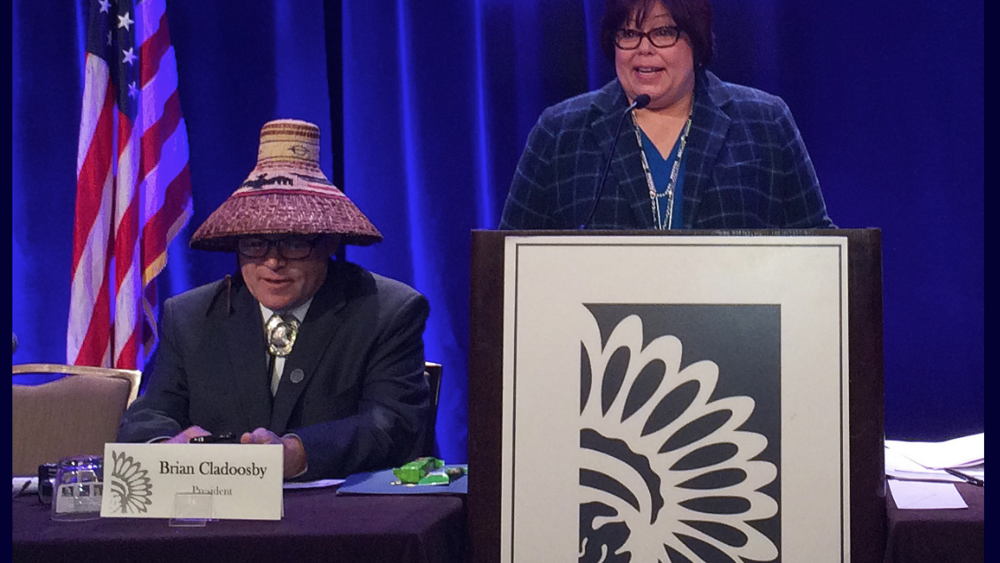
Tribes reach key milestone with jurisdiction provisions of VAWA
The tribal jurisdiction provisions of the the Violence Against Women Act became effective nationwide on Saturday, clearing the path for non-Indians to be held accountable for abusing their Indian partners. Congress enacted S.47 to recognize tribal authority to arrest, prosecute and punish non-…

How to Protect Tribal Lands From Our Deadliest Enemies
In 2001, the U.S. Supreme Court dealt a severe below to Indian sovereignty when it decided Nevada v. Hicks, suggesting to states and counties that when their cops are investigating off-reservation crimes, they need not obtain tribal court warrants to conduct searches or arrests on tribal land. The…
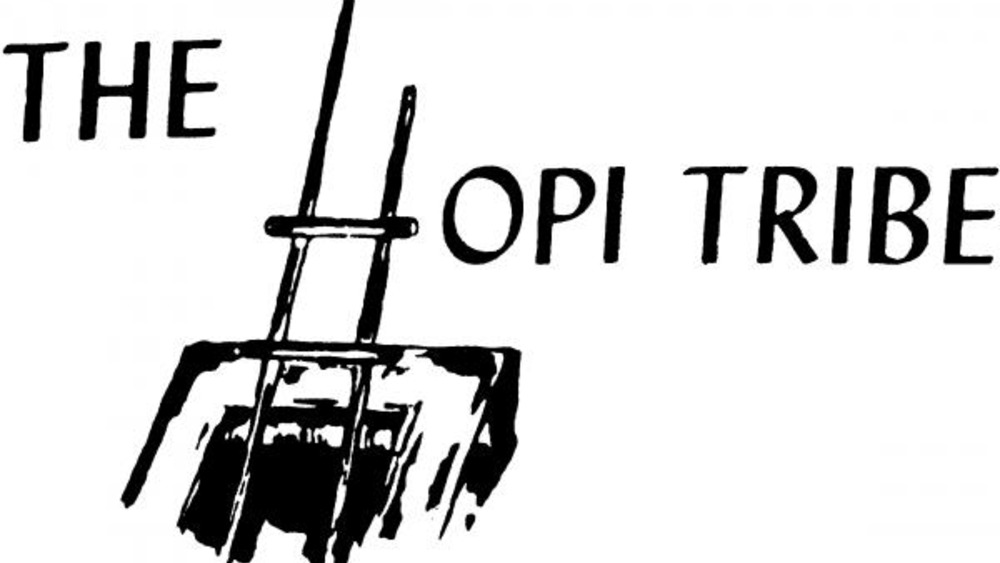
A Leader Emerges: Hopi Tribe Adopts New Criminal Code According to Tribal Law and Order Act Standards
The Hopi Tribal Council voted to adopt a new criminal code on August 28, thereby scrapping a 1970s version that all but failed to punish sex crimes and limited tribal prosecutors to one-year terms, even for murder. In doing so, the small Arizona tribe emerged as a leader in Indian country when it…
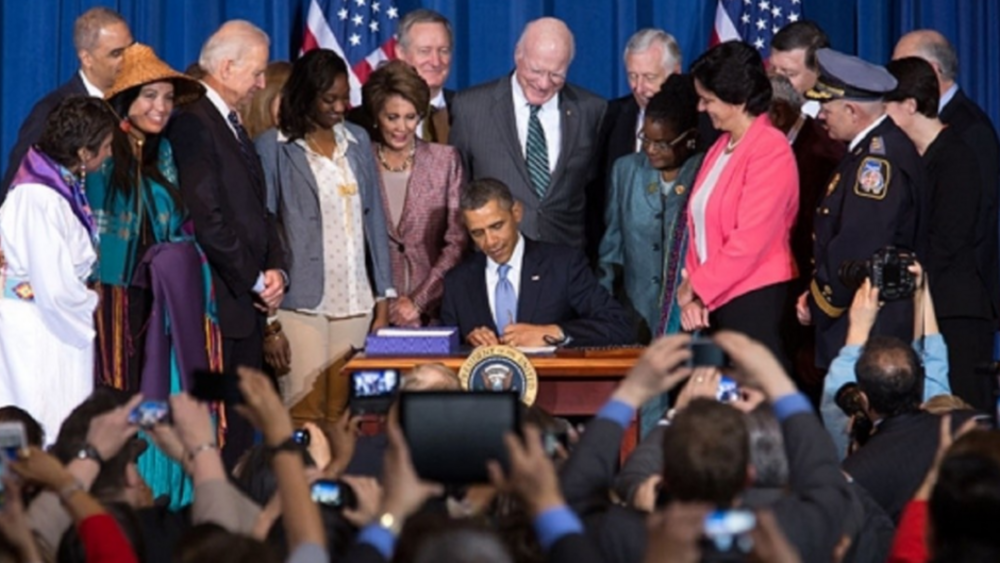
VAWA 2 Years Later
It’s been just over 2 years since Congress reauthorized the Violence Against Women Act. In February of last year, three tribes participated in a pilot project to exercise the special domestic violence criminal jurisdiction (SDVCJ) portion of the law. Under SDVCJ, some tribes can prosecute Natives…
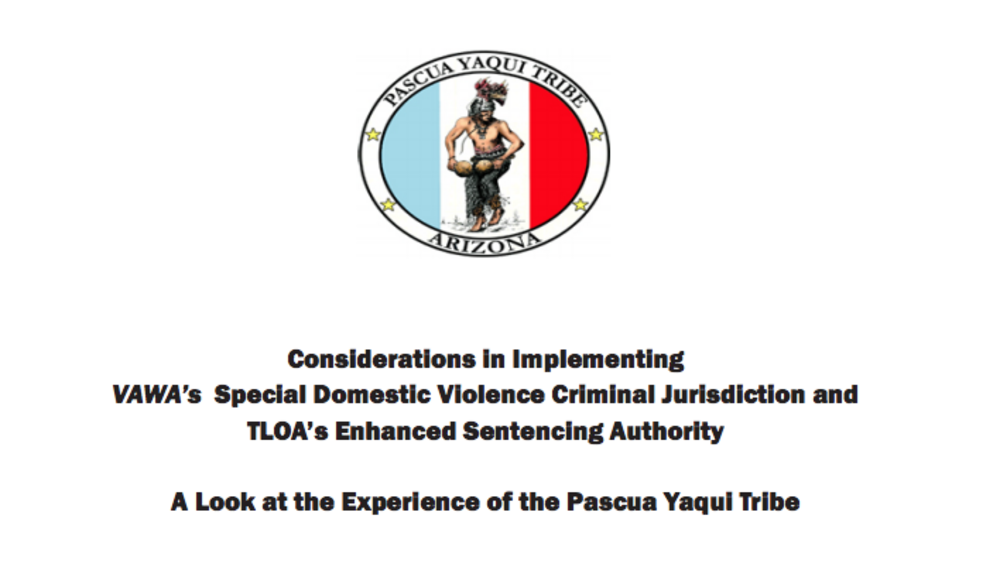
Considerations in Implementing VAWA's Special Domestic Violence Criminal Jurisdiction and TLOA's Enhanced Sentencing Authority: A Look at the Experience of the Pascua Yaqui Tribe
On February 20, 2014, pursuant to the Violence Against Women Reauthorization Act of 2013 (VAWA 2013), the Pascua Yaqui Tribe was one of only three Tribes across the United States to begin exercising Special Domestic Violence Criminal Jurisdiction (SDVCJ) over non-Indian perpetrators of domestic…
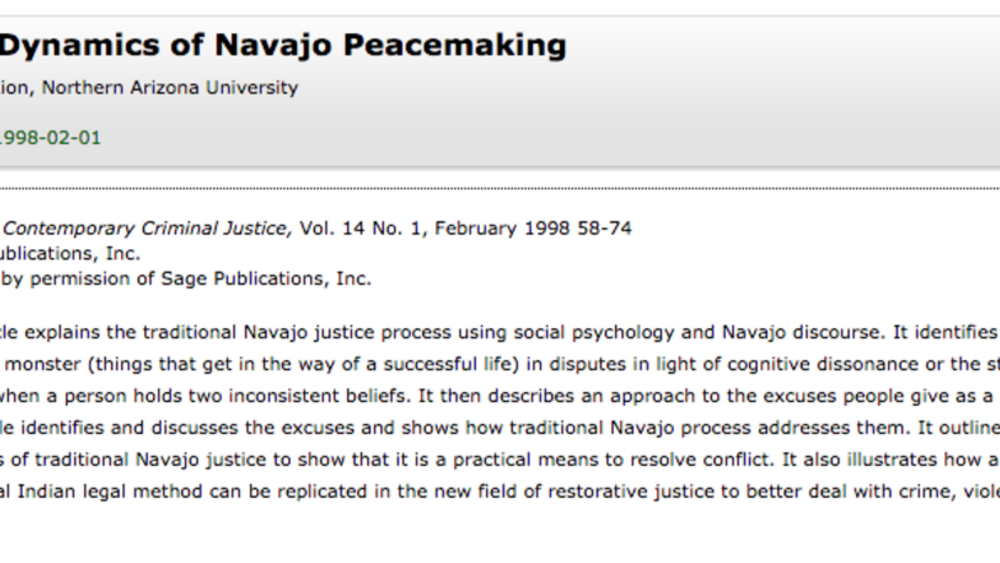
The Dynamics of Navajo Peacemaking
This article explains the traditional Navajo justice process using social psychology and Navajo discourse. It identifies the nayee or monster (things that get in the way of a successful life) in disputes in light of cognitive dissonance or the state of tension when a person holds two inconsistent…
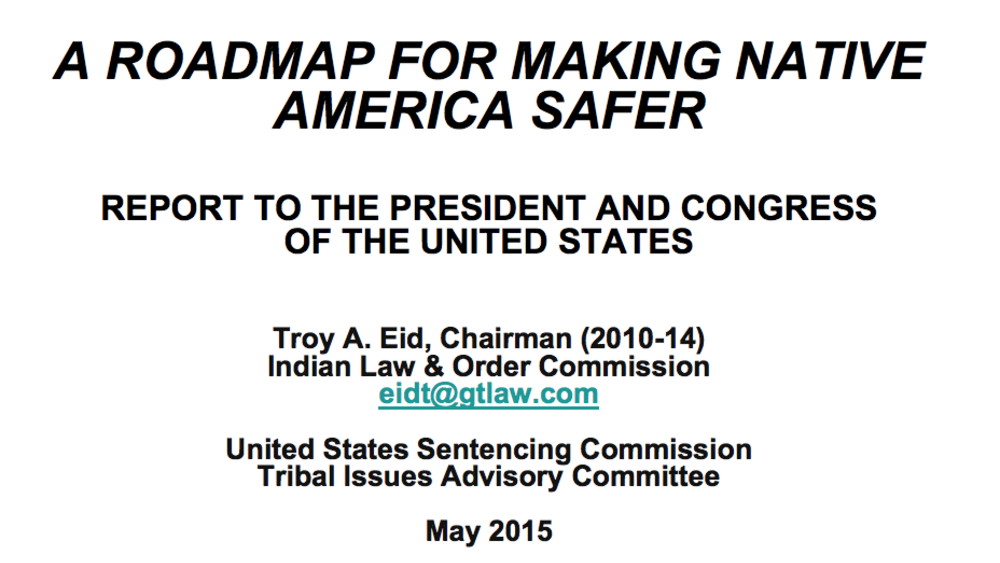
A Roadmap For Making Native America Safer: Report To The President And Congress Of The United States
A Roadmap for Making Native America Safer (Roadmap) provides a path to make Native American and Alaska Native communities safer and more just for all U.S. citizens and to reduce unacceptably high rates of violent crime rates in Indian country. The Roadmap is the culmination of hearings,…
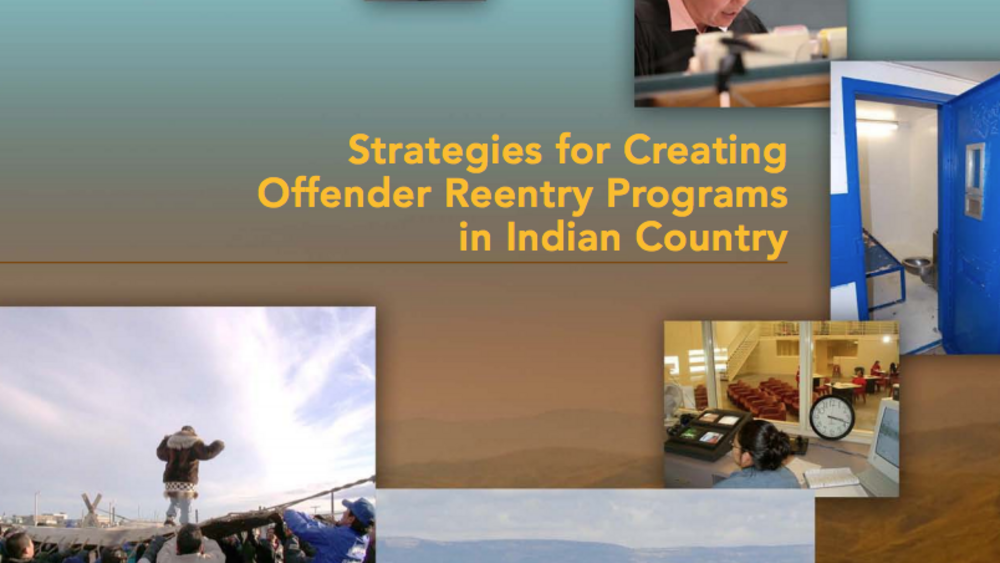
Strategies for Creating Offender Reentry Programs in Indian Country
Weed and Seed, a community-based strategy sponsored by DOJ, is an innovative, comprehensive, multi-agency approach to law enforcement, crime prevention, and community revitalization. The strategy aims to prevent, control, and reduce violent crime, drug abuse, and gang activity in designated high-…
